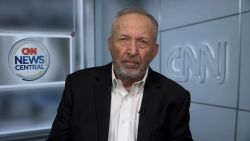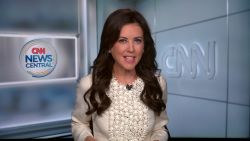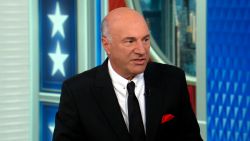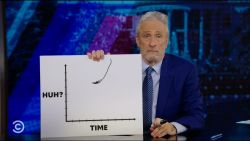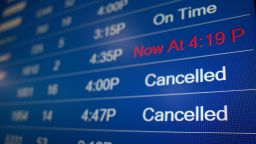Claude Ronnie Msowoya and his family spent three days trying to get to Johannesburg, South Africa, only to be forced to return home by train, without his baggage.
Msowoya told CNN that his United Airlines flight from Boston to Newark airport was delayed Sunday, which caused him and his family to miss their connecting United Airline flight from Newark to Johannesburg.
Msowoya said his family was eventually booked on another United Airlines flight that was scheduled to take off Monday evening, but it was also canceled.
“We had to go to the customer service line, which had taken us 10 hours the previous day. We didn’t get any help and later tried to get our bags to cancel the trip. We stood in line for 6 hours at luggage claim only to be told that they won’t be giving anyone their luggage and they should file a claim and pray and hope that their luggage gets delivered to them,” Msowoya said.
Msowoya told CNN his family decided to take a train back home to Boston after spending three days in Newark airport.
His story was hardly unique. Disruptions for air travelers continued Tuesday for a fourth day with more than 9,000 flights across the United States delayed or canceled after powerful storms ripped through the parts of the country, including in the Mid-Atlantic and parts of the Northeast where many busy hubs are located.
Data from FlightAware showed that more than 7,300 flights within, into or out of the US were delayed Tuesday and more than 2,100 were canceled. Still, that’s a major decrease from Monday’s chaos, when more than 11,000 flights were either delayed or canceled because of severe weather and air traffic control staffing issues.
United Airlines was once again faring the worst of the US domestic airlines. About 26% of its schedule, or 774 flights, were canceled and another 41%, or 1,226 flights, were delayed. Republic Airways, which operates feeder flights for American Airlines, Delta and United, had 39% of its schedule canceled (379 flights).

On Tuesday night, the Federal Aviation Administration implemented temporary ground stops for flights going to all three major airports in the New York metro area. The average delays leaving LaGuardia are more than two hours, according to an FAA advisory, and more than four hours for flights bound to the airport.
“Thunderstorms in the New York area are blocking arrival and departure routes for La Guardia Airport, JFK International Airport and Newark Liberty International Airport,” the FAA said in a statement. “You can expect delays in the New York metro area tonight.”
More than 40 million people in the Northeast and Central Plains are at risk of severe storms on Tuesday. The majority of people at risk are located in the Northeast, including Philadelphia and Washington, DC, where a Level 1 of 5 threat has been issued by the Storm Prediction Center. A level 3 of 5 threat, of severe weather, is highlighted for parts of Kansas and Oklahoma, including Wichita and Tulsa.
Scattered thunderstorms are again expected east of a cold front from the Mid-Atlantic into parts of the Northeast, leading to the possibility of even more flight delays and cancellations later.
Some of these afternoon storms could produce damaging wind gusts, and heavy rain from these storms could produce isolated instances of flash flooding, particularly over parts of southeastern New York, Delaware and Pennsylvania.
United CEO blames FAA for weekend delays
While weather is part of the reason for the flight disruption, a lack of adequate staffing at the air traffic control centers run by the Federal Aviation Administration and a lack of capacity at US airlines also come into play.
That adds to the problem, making it difficult for the system to handle disruptions caused by bad weather, and for passengers to find seats on new flights when their original flight is canceled.
The head of United Airlines, in a strongly worded memo to staff, blamed the FAA’s air traffic controller staffing problems for “unprecedented challenges” this past weekend that impacted “over 150,000 customers on United alone.”
“The FAA frankly failed us this weekend,” said United Airlines CEO Scott Kirby in an internal company memo shared with CNN.
Kirby says that on Saturday, the FAA reduced arrival rates at its major hub at Newark Liberty International Airport by 40 percent and departure rates by 75 percent, which was “almost certainly a reflection of understaffing/lower experience at the FAA.”
“It led to massive delays, cancellations, diversions, as well as crews and aircraft out of position,” Kirby said. “And that put everyone behind the eight ball when weather actually did hit on Sunday and was further compounded by FAA staffing shortages Sunday evening.”
Kirby says he will be meeting with the FAA and Department of Transportation “to discuss what steps FAA can take in the immediate term to prevent this from happening again this summer.”
The FAA responded Tuesday morning, saying “we will always collaborate with anyone seriously willing to join us to solve a problem.”
In the memo, Kirby was careful to say the current FAA leadership did not create the current staffing problem, but that they need to deal with them. “To be fair, it’s not the fault of the current FAA leadership,” he wrote, but added “they are responsible for solving the problem they inherited.”
These latest problems come at an especially busy time. With millions of passengers set to pack commercial flights for the long holiday weekend, the Transportation Security Administration says July 4 air travel will be even bigger than it was before the pandemic.
The agency anticipates screening 2.82 million people at airports nationwide on Friday, surpassing a post-pandemic record set on June 16 as well as the 2.79 million passengers the TSA screened on July 7, 2019.
CNN’s Caroll Alvarado, Monica Garrett, Pete Muntean and Greg Wallace contributed to this report











